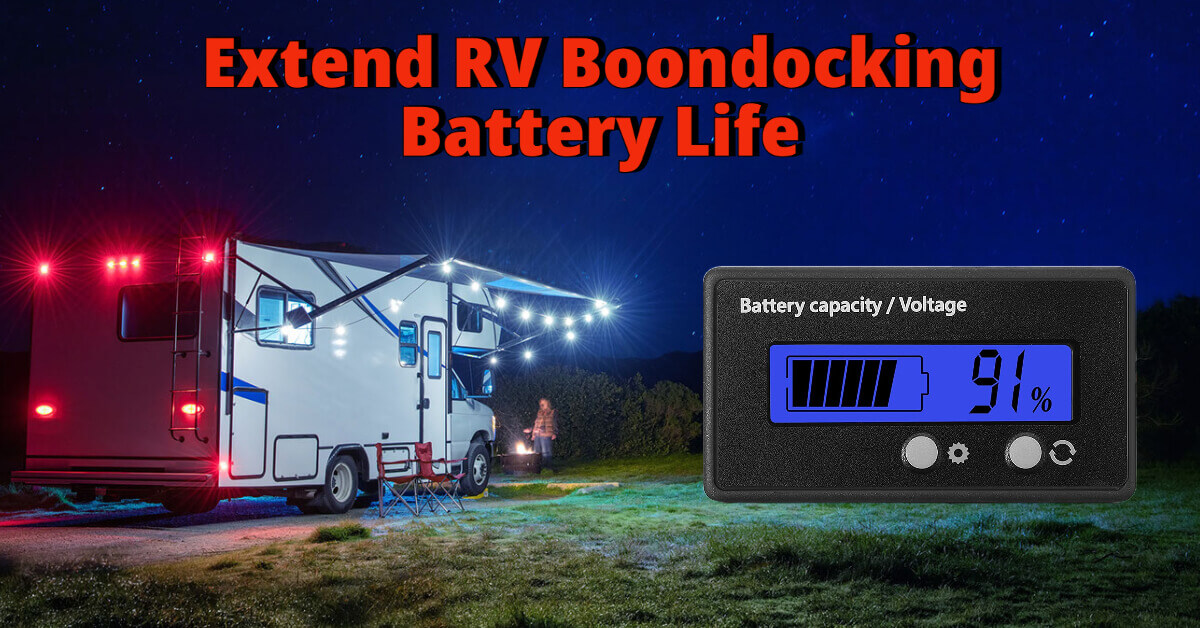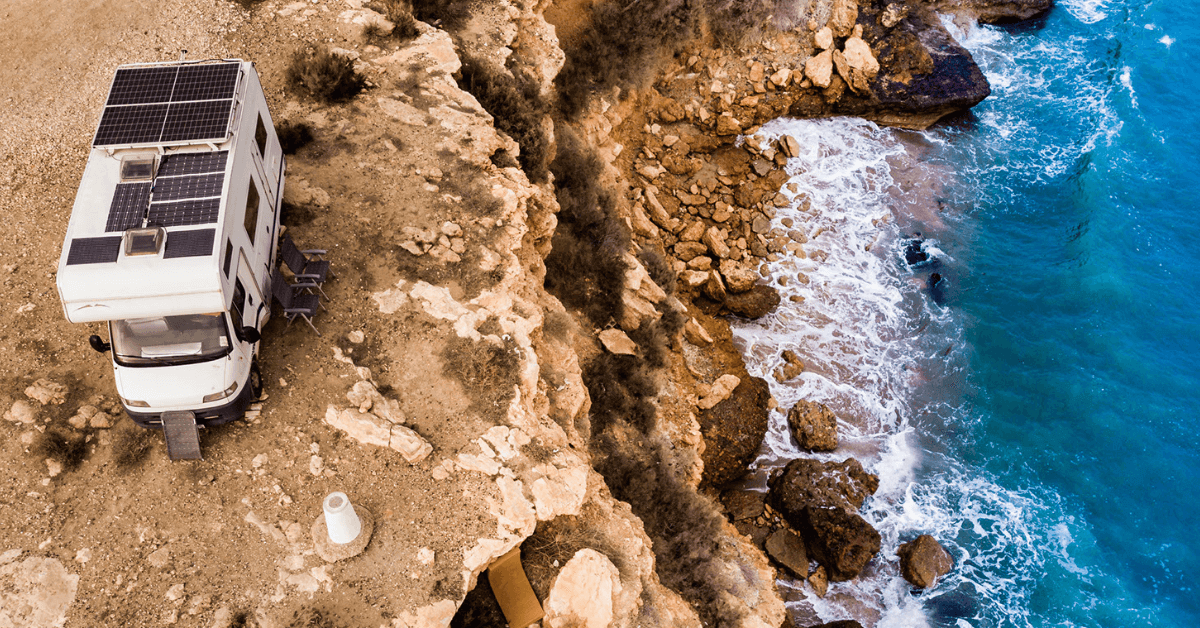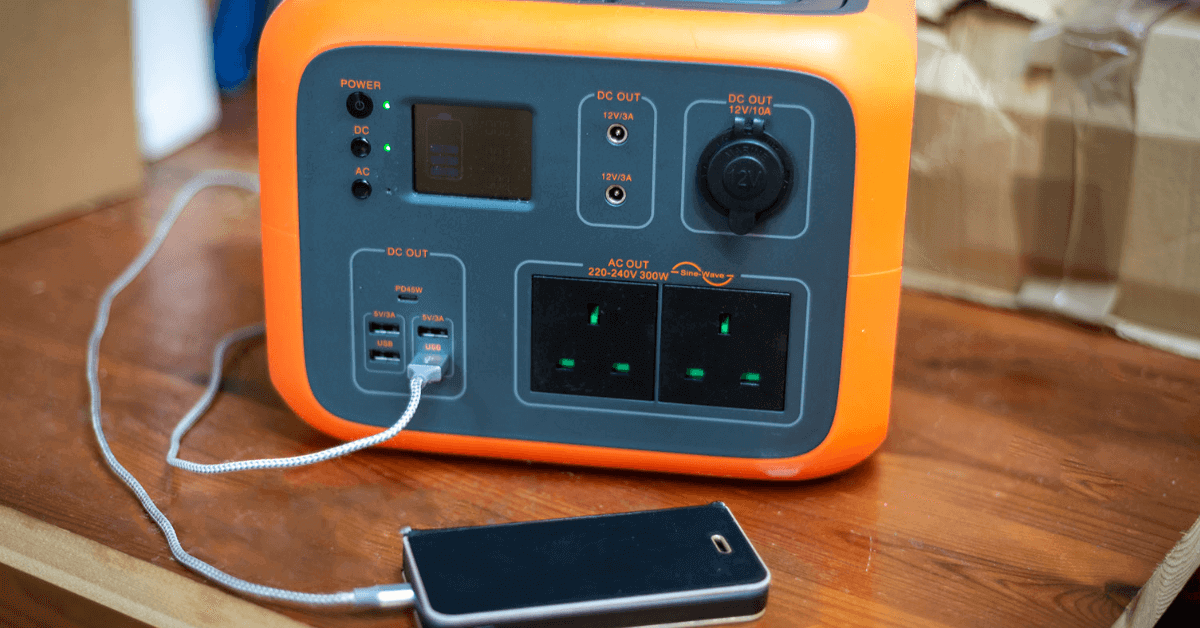- Home Page
- More RVing Tips & Tricks
- Extend Rv Boondocking Battery Life
Extend RV Boondocking Battery Life
Here are some helpful tips on how to extend RV boondocking battery Life
Suppose you love the freedom and adventure of RVing. In that case, you know that boondocking – camping without hookups – can be one of the most rewarding ways to experience the great outdoors. But boondocking also comes with its own set of challenges, including how to power your RV and its appliances and electronics. Here are tips on how to extend RV Boondocking battery life:
1. Use LED light bulbs instead of incandescent bulbs: LED lights are a more energy-efficient and longer-lasting choice than incandescent bulbs. They use less power, which means they won't drain your battery as quickly. LED bulbs also produce less heat, which can be helpful in an RV where space is limited. When shopping for LED bulbs, look for energy-efficient ones with a high lumen output. This will help you get the most light while using the least energy. Consider replacing all the light bulbs in your RV with LED bulbs to make the biggest impact on your energy usage.
2. Turn off appliances and electronics when they are not in use: This includes TVs, laptops, and chargers. Make a habit of unplugging chargers when not in use, as they can still use a small amount of power even when not charging a device. Consider using a power strip to make it easy to turn off multiple electronics simultaneously. This can be especially helpful for TVs and computers with multiple chargers and peripherals plugged in.
When you're not using an appliance, turn it off and unplug it if possible. This includes things like coffee makers, toasters, and microwaves. Be mindful of the energy usage of your appliances and electronics and try to use them only when necessary. Set your TV and other electronics to "power save" mode or turn them off when you're not using them. If you're not using your laptop, consider shutting it down instead of just putting it to sleep. This can help save energy and extend RV boondocking battery Life.
3. Use a power inverter to run appliances and electronics that need 120V AC power: A power inverter allows you to use appliances and electronics that require 120V AC power while you're boondocking. This can be more efficient than using a generator, as it uses less fuel and makes less noise. When shopping for a power inverter, get one which is the right size for your needs and has a built-in battery charger and low battery shut-off feature to protect your RV's battery.
Make sure the power inverter you choose is compatible with your RV's charging system and appliances. Only use the power inverter when necessary and try to turn off appliances and electronics when they are not in use to save energy. Avoid using the power inverter for extended periods, as this can drain your battery quickly.
4. Invest in solar panels to charge your batteries: Solar panels use the sun's power to charge your RV's batteries, which is a more efficient and eco-friendly way to power your RV. When shopping for solar panels, be sure to get the right size for your needs and compatible with your RV's battery and charging system.
Make sure the solar panels you choose have a high wattage and a high-efficiency rating. Consider adding a solar charge controller to your setup to help regulate the flow of electricity from the panels to the battery. Keep your solar panels clean and debri free to ensure they operate at maximum efficiency. Solar panels can be a significant upfront investment, but they can save you money on fuel and generator maintenance in the long run. They are a great way to extend RV boondocking battery Life and can also be an excellent way to reduce your carbon footprint while RVing.
5. Use a battery monitoring system to keep track of your battery usage: A battery monitoring system lets you track your battery usage and monitor battery health. This can help you understand how much power you're using and how much is left in your battery. By using a battery monitoring system, you can make more informed decisions on how to use your appliances and electronics and extend the life of your battery. Get one compatible with your RV's battery and charging system when shopping for a battery monitoring system.
Some battery monitoring systems have low battery alerts and automatic shut-off to help conserve power and protect your battery. Make sure to regularly check your battery monitoring system and note any changes in your battery usage or capacity. A battery monitoring system can help you identify issues with your battery or charging system. It also allows you to take corrective action before it becomes a bigger problem.
6. Only use your generator when necessary: Your RV's generator can be a valuable backup power source when boondocking. You must use it responsibly to conserve fuel and extend its lifespan. Avoid running your generator for extended periods of time and try to use it during the day when it is cooler, as this will help it run more efficiently.
Ensure your generator is properly maintained and serviced according to the manufacturer's recommendations. Use the right type and amount of fuel for your generator. Follow all safety guidelines, including keeping it in a well-ventilated area. By using your generator only, when necessary, you can conserve fuel and extend RV boondocking battery Life.
7. Consider using a portable power bank or a portable generator to power your RV when boondocking: A portable power bank (pictured above) is a small, portable battery that can be used to power your RV's appliances and electronics. They are convenient because they are easy to carry and can be charged using various methods, including a solar panel. A portable generator is a small, portable engine that can be used to generate electricity for your RV. They are helpful in situations without access to power and can be fueled by gas or propane.
When shopping for a portable power bank or generator, get one that is the right size for your needs and is compatible with your RV's charging system and appliances. Use your portable power bank or generator only when necessary. Turn off appliances and electronics when they are not in use to save energy. Follow all safety guidelines when using a portable power bank or generator, including keeping them in a well-ventilated area and using them according to the manufacturer's instructions. Portable power banks and generators can be a convenient and efficient way to power your RV when boondocking or off the grid.
Here
are a Few Additional Ways to Extend RV Boondocking Battery Life
- Use a low-wattage inverter: If you need to use a power inverter to run appliances and electronics that require 120V AC power, be sure to get a low-wattage inverter. This will allow you to power your essentials without using too much energy.
- Use a battery charger: A battery charger can be a valuable tool for maintaining the health of your RV's battery. By keeping your battery charged, you can extend its lifespan and ensure it is always ready to go when needed.
- Use a propane refrigerator: If your RV has a propane refrigerator, consider using it instead of your electric fridge when boondocking. Propane fridges are more energy-efficient and can be an excellent way to conserve battery power.
- Use a portable solar panel: If you don't have room for a full solar panel setup on your RV, consider using a portable solar panel instead. These small, lightweight panels can be placed on the ground or mounted on a tripod and can be a convenient way to charge your batteries when boondocking.
- Use a DC to DC charger: A DC to DC charger can help maintain your RV's battery while you're driving. Using the power from your vehicle's alternator, a DC to DC charger can help keep your battery charged and extend its lifespan.
- Turn off your water pump when not in use: Your RV's water pump can use a lot of power, so it's essential to turn it off when you're not using it. Consider using a manual switch to turn the pump off when you're not using it or use a low-flow showerhead to reduce the power the pump needs.
- Use energy-efficient appliances: When shopping for appliances and electronics for your RV, look for energy-efficient ones. Energy Star certified appliances are a good choice, as they are designed to use less energy and can help you conserve power while boondocking.
- Avoid using appliances and electronics at the same time: To save energy, try to avoid using multiple appliances and electronics at the same time. For example, if you're using your microwave, avoid using other appliances like the coffee maker or toaster simultaneously.
- Keep your batteries clean and well-maintained: Proper maintenance of your RV's batteries can help extend their lifespan and improve their performance. Be sure to clean your battery terminals and check the water level in your batteries regularly. If you notice any issues with your batteries, address them as soon as possible.
Now that you have reviewed the tips on how to extend RV Boondocking battery life, you can extend the battery life of your RV when boondocking and enjoy a more energy efficient and enjoyable camping experience. Always use your appliances and electronics responsibly and be mindful of your energy usage to make the most of your battery power.
What are some ways to extend RV boondocking battery Life?
What are some ways to extend RV boondocking battery Life?
There are several ways to extend the battery life of your RV when boondocking:
- Use LED light bulbs instead of incandescent bulbs
- Turn off any appliances and electronics when they are not in use
- Use a power inverter to run appliances and electronics that need 120V AC power
- Invest in solar panels to charge your batteries
- Use a battery monitoring system to keep track of your battery usage
- Only use your generator when necessary
- Consider using a portable power bank or a portable generator to power your RV
How can I save energy when using appliances and electronics in my RV?
How can I save energy when using appliances and electronics in my RV?
Here are a few tips for saving energy when using appliances and electronics in your RV:
- Turn off appliances and electronics when they are not in use
- Use energy-efficient appliances and electronics
- Avoid using multiple appliances and electronics at the same time
- Set your TV and other electronics to "power save" mode or turn them off completely when you're not using them
- If you're not using your laptop, consider shutting it down instead of just putting it to sleep
How can I use my generator more efficiently when boondocking?
How can I use my generator more efficiently when boondocking?
To use your generator more efficiently when boondocking, try the following:
- Only use your generator when necessary
- Avoid running your generator for extended periods of time
- Use your generator during the day when it is cooler, as this will help it run more efficiently
- Make sure your generator is properly maintained and serviced according to the manufacturer's recommendations
- Use the right type and amount of fuel for your generator
- Follow all safety guidelines when using your generator, including keeping it in a well-ventilated area.







Comments
Do you have a comment on this topic? You can leave your comment in the box below.